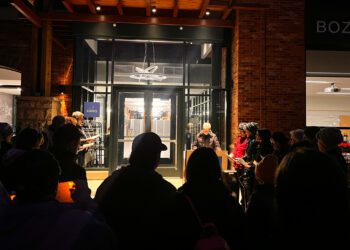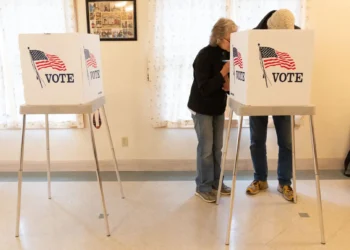With growing need in Gallatin County, Haven makes support available to survivors 365 days a year
By Julia Barton DIGITAL PRODUCER
BOZEMAN—There is a common assumption that domestic violence increases during the holidays due to factors such as increased family time, financial stress and outside expectations, however, local and national data show a decrease in calls to domestic violence hotlines.
While that data may suggest a dip in violence, experts from Haven, a Bozeman-based nonprofit serving survivors of domestic violence, sex trafficking and stalking, confirm that abuse certainly continues through the holidays and are committed to providing help to those in need, no matter the day.
In 2019, the National Domestic Violence Hotline received an average of 870 calls daily, yet saw just 467 on Thanksgiving, 502 on Christmas and 696 on New Year’s Eve. According to Beth Kampschror, Haven’s director of communications, local numbers follow the same trend.
“Domestic violence usually [happens] behind closed doors and in the privacy of someone’s home, the privacy of their relationship,” Robinson said. “It’s not something that always happens in front of others. So if there are other family members around, [abuse] might not be going on, specifically on those days when people are gathering together for the holiday.”
Although calls are down, there are strenuous holiday-related factors that can exacerbate domestic violence at home, Robinson explained.
“Holidays can be quite expensive and it can be a stressful time,” Robinson said. “It’s important that people recognize that the holidays or stress or financial stress or substance use are not the causes of domestic violence, but that those things can definitely cause an escalation and increase the level of violence that’s being experienced.”
Robinson emphasized that Haven’s call service is available for people in Gallatin County on all days, including holidays. First-time callers will be asked to provide some of their personal information and be walked through Haven’s confidentiality policy. After the basics are covered, Haven works with the caller to determine what resources they may need and how to access them.
“It varies based on every survivor that we talk with,” Robinson explained. “We explore safety planning with them to really identify what their primary goals are for the phone call and then offer whatever support it is they’re looking for.”
Support can range from providing information about domestic violence, validation of their experiences and active listening to helping provide a survivor with shelter when needed. Haven also has access to translators to ensure non-English speaking callers can use their services.
Haven’s current shelter capacity is 10 and their facility is often unable to accept new survivors, although they can help find shelter in other areas for people in need. According to Kampschror, Haven served 12% more survivors this year than last, a disproportionate increase compared to the roughly 3% growth rate of the county.
Robinson hypothesized that less stigma around abuse and more awareness of the services offered by the nonprofit have contributed to the increase. To help improve their resources, Haven is currently working on a new building that will increase its shelter capacity to 40 and is set to begin a phased opening in the spring of 2023.
“We want everyone to know that they’re not alone, and that help is available via our 24-hour support line,” Kampschror wrote in an email to EBS.
For more information about the support services offered by Haven, refer to its website.












